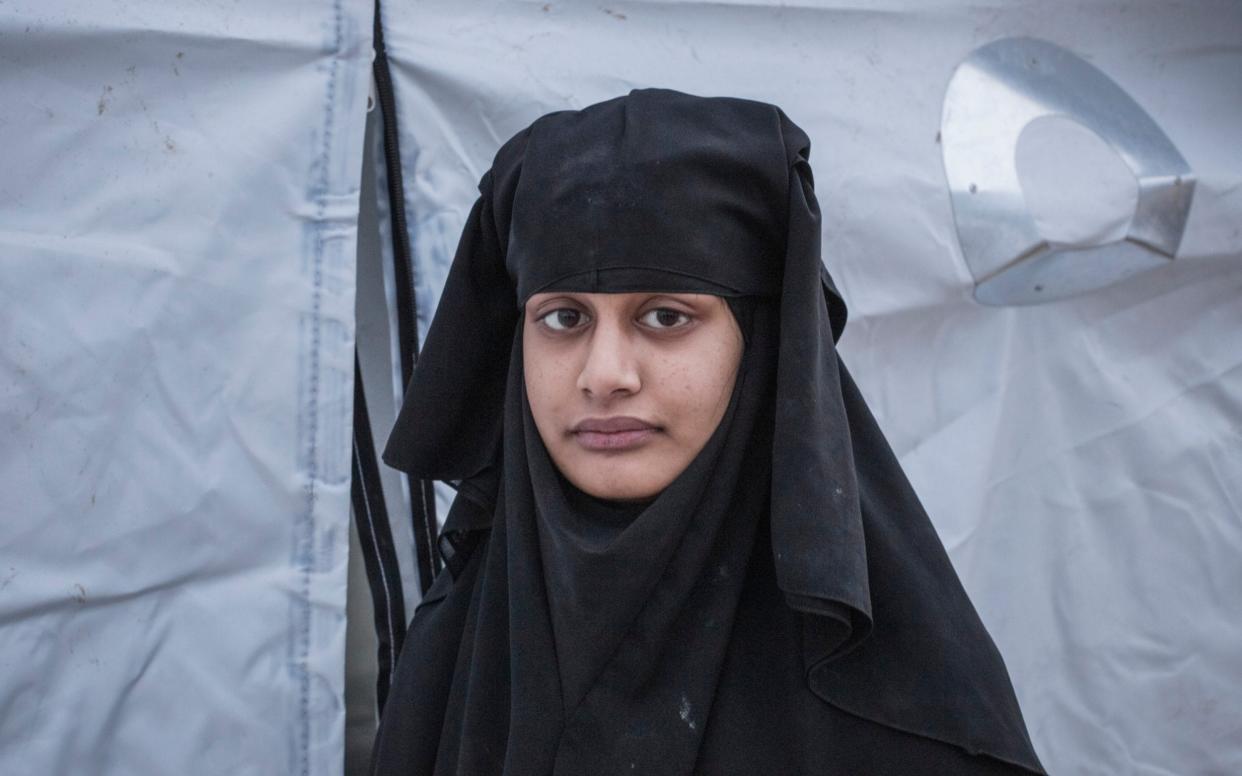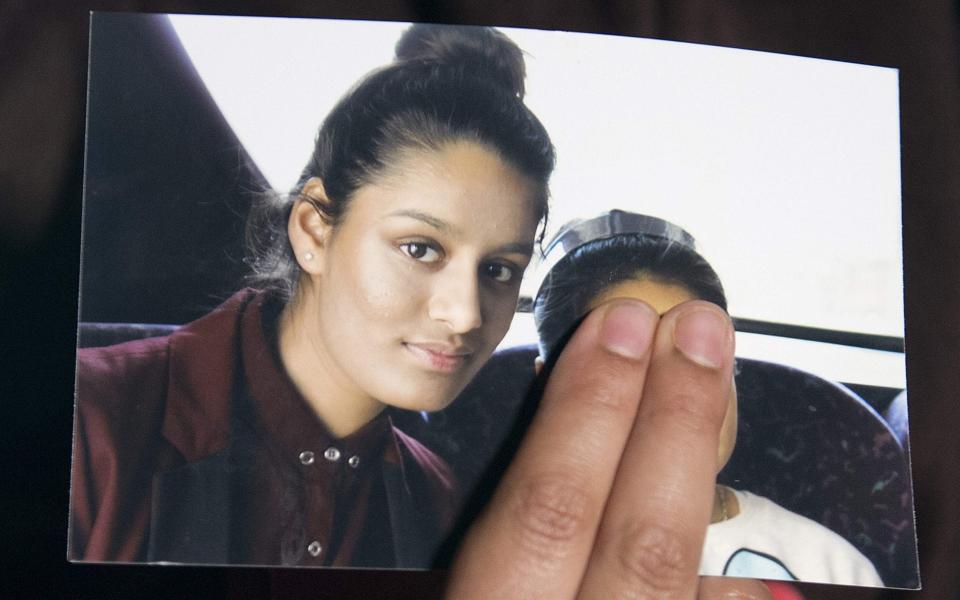Blocking Shamima Begum's return will further terrorist threat against UK, senior Tories warn

Refusing to repatriate Shamima Begum and other British Isil brides and families will further the terrorist threat against the UK, senior Tories have warned.
In a letter to Foreign Secretary Dominic Raab and Home Secretary Priti Patel, the four MPs – including three former ministers – said Britain should not “wash its hands” of the 40 Britons detained in camps for Isil fighters, jihadi brides and their children in northern Syria.
The four – Andrew Mitchell, David Davis, Tom Tugendhat and Tobias Ellwood – warned that failure to take responsibility for them like other nations including the US under President Joe Biden would “necessarily create even more security risks for the UK in the future”.
Their warning comes on the eve of tomorrow's Supreme Court judgement on whether Begum, who left London as a schoolgirl to join Isil in 2015, should be allowed back into the UK to challenge the removal of her British citizenship.
Writing exclusively online for The Telegraph, Mr Mitchell, former international development secretary, said that irrespective of the judgement, leaving Begum, pictured below, and other Britons “swilling around in ungoverned space” had the potential to backfire not only in the region but on the streets of Britain.

“If they are judged to be a risk, then all the more reason why they should be returned to Britain where they can be processed by the British criminal justice system,” said Mr Mitchell.
“There are a host of potentially applicable offences on the statute book, such as ‘preparation of terrorist acts’ under Section 5 of the Terrorism Act 2006, which can carry a life sentence.
“The Director of Public Prosecutions has made crystal clear Britons returning from Syria can be prosecuted, saying he expects this to happen ‘in the vast majority of cases.’ Any returning prisoner who committed crimes in Syria will face British justice.
“Our justice system is also best placed to deal with the deep complexities of these cases. Many of the people involved travelled to Syria as teenagers, after being groomed online or trafficked by organised Isis gangs. These are challenging issues which must be considered.”
Begum’s British citizenship was revoked on national security grounds after she was found in a Syrian refugee camp in February 2019. Begum, who fled the UK to join Isil aged 15 and is now 21, is seeking to return to the UK to challenge this decision.
The court of appeal ruled last July the only way she could have a “fair and effective” appeal was to return to the UK, but this was challenged in November by the Home Office which said it would create “significant national security risks” and expose the public to “an increased risk of terrorism”.
The Supreme Court will rule today if she should be granted leave to return to the UK and whether her appeal will be allowed if she is not allowed back.
In their letter, the MPs said failure to bring the Britons back would “abdicate our duty as a responsible nation” and warned that British inaction had already caused the US to express “extraordinary frustration.”
The US, which recently repatriated 28 Americans, had even offered the UK operational support, they said. “The camps in north-east Syria are a shared security challenge and we cannot expect our allies to do the hard work for us,” they added.
Maya Foa, director of Reprieve, a human rights charity, said: “Abandoning British women and children in these camps is a cowardly abdication of responsibility, and out of step with our allies’ efforts to repatriate their nationals.”
There is concern in government that repatriation of the Britons would still provide security services and counter-terrorism police with a major problem in how to keep them under control.
Round the clock surveillance is prohibitively expensive and requires huge manpower that would have to be diverted from other terror cells currently being watched.

 Yahoo News
Yahoo News 
